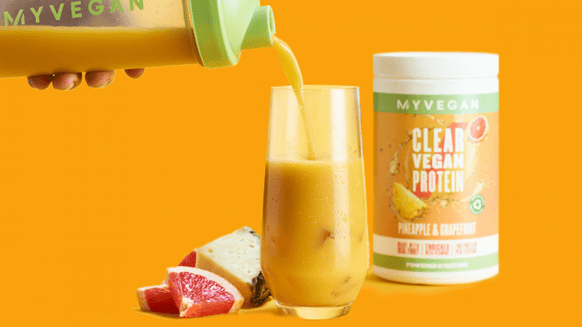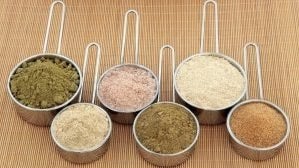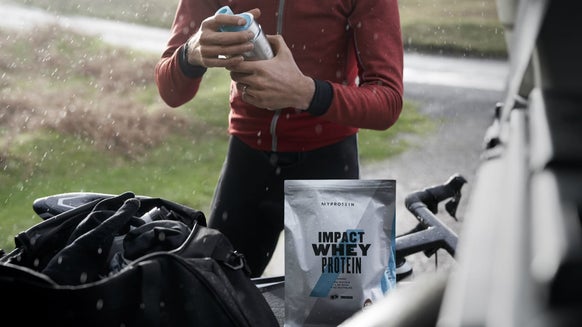Does Whey Protein Contain Amino Acids? | 3 Protein Profiles
Whey protein and amino acids both are known to promote muscle recovery, growth and repair, but how do we choose between the two, or do we even have to?
So you’ve been told you need to get your whey, your protein and your amino acids all in different conversations with nutrition experts or articles from our website and now you’ve stopped to think, are they the same thing and does one contain the other? It’s far from an obvious question as these days with the plethora of protein and fitness supplements available to you there is a good chance you have either tried and tested each of the aforementioned as individual supplements or combined as one in a blend.

Does Whey Protein Contain Amino Acids?
So let’s set the record straight: the above-mentioned items all come as individual supplements. Protein supplements come in various forms. There is not just whey, a one size fits all, but several forms of protein, including whey isolate, concentrate. And then there are carb heavy blends, mass build formulas, added amino acids and pre-workout supplements that may combine whey with the likes of creatine and caffeine.
Whey protein is found in milk, along with casein, which is the protein that is slowly digested making it ideal for long-haul slogs and for consuming before you sleep. Whey is created in the production of cheese, from the liquid whey that remains when curds come together. (Remember the nursery rhyme about getting your curds and whey?
Now you know Little Miss Muffet was actually a bodybuilder taking a rest on a tuffet to get her nutrition.When whey protein is made the whey liquid is processed and refined to separate the proteins from the fats and lactose, and then dried to produce a powder.
The end result of whey protein as you know it in its powdered form is a concoction of different proteins including alpha-lactalbumin, beta-lactoglobulin, serum albumin, lactoferrin and immunoglobulins (antibodies). All proteins are made of amino acids, which are often referred to as the building blocks of protein.
What About Other Proteins?
Plants contain protein too, but are they rich in amino acids?
Pea Protein Amino Acid Profile
Pea protein is increasing in popularity these days, but there’s a good chance you haven’t heard of it. Pea protein powder is a hypoallergenic protein powder and is suited to people with an aversion to dairy and gluten. Bloating and stomach distress is not a problem with pea protein, and among its other benefits are its ability to reduce blood sugar by improving your glycemic control and it is good for your heart, with plant-based proteins proving to help lower high blood pressure, and helps to reduce inflammation.
Further to this, pea protein amino acids help you to lose weight by lowering the levels of your hunger hormones while providing you with the amino acids you want and need for lean gains.

Hemp Protein Amino Acid Profile
Hemp protein powder is comprised of hemp plant seeds. Hemp seeds are a chocked full of protein goodness with more than 20 amino acids, including the nine essential amino acids (histidine, isoleucine, leucine, lysine, methionine, phenylalanine, threonine, tryptophan and valine).
Further to this, hemp protein provides your body with the essential fatty acids that your body doesn’t naturally make, including omega-3 and omega-6. A major benefit of hemp protein powder is its capacity to boost your metabolism and therefore increase your protein intake.
Soy Protein Amino Acids Profile
Soy is a top source of plant protein complete with all nine essential amino acids, which not all other plant proteins have. The amino acids in soy protein are found in tofu, soy flour, soy milk, textured soy protein, soy meat substitutes, miso, which is a fermented soybean paste, soybeans and edamame. Soy is an excellent choice of whey for vegetarians wishing to avoid dairy.
Amino Acid Supplements vs. Protein Powder
Both amino acid supplements and protein powders are leading sources of all you need to increase protein consumption, improve athletic performance, build muscle and decrease recovery time after workouts. But if you had to pick one, which would it be? Let’s take a look at the pros and cons.
As protein powders derive from milk, egg and soy they provide you with the essential amino acids that they need. Vice versa, however, amino acid supplements don’t provide your body with what you need from protein. In fact, when taken in too great a quantity can mess up your metabolic balance. An example of this is an overdose of leucine may result in low blood levels.
Protein powders provide you with a percentage of your required protein intake. Remember, your body needs this for everything, including the healthy functioning of your various systems, not just your muscle development and growth. Protein powders also count towards your daily calorie intake whereas amino acids provide minimal calories. Amino acids can lead to protein synthesis in your body, but each kind works a different part of your metabolism, affecting brain chemicals while others may be geared towards your muscles.
In common is the fact that both supplements enter your blood as single amino acids, they are then used to build new proteins. Where one is lacking that protein cannot be built, so it’s important that you ensure you get what your body needs and bear in mind known side effects.

Take Home Message
Both whey protein and amino acids are integral to your strength, athletic performance and your ability to recover and rebuild muscle after you train. Whey protein contains amino acids, including the essential amino acids not made in your body. When it comes to supplementation you should way up the pros and cons of each, but as a safe bet, whey protein powder – which comes in various forms suited to gluten free and dairy free diets – contains everything your body needs to fuel and recover from your ambitions.
READ THESE NEXT:

Alice Pearson is a UKVRN Registered Associate Nutritionist and UK Anti‐Doping accredited advisor, having obtained a Bachelor’s of Science in Nutrition and a Master’s of Science in Sport Nutrition. She has a specialist interest in the use of sports supplements for improving health, fitness, and sport performance.
Alice has experience working with both amateur and elite athletes, including providing nutritional support to Tranmere Rovers FC and Newcastle Falcons Rugby Club. Her nutritional guidance is always supported by evidence‐based research, which she keeps up to date through continuing professional development and independent learning.
In her spare time, Alice loves travelling, hitting the gym, and getting stuck into a good book. Find out more about Alice's story here.






